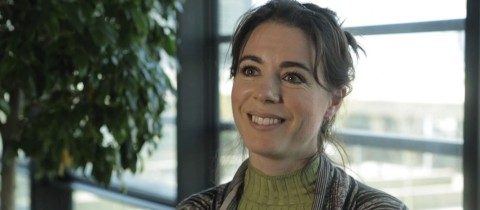
Most marketing or HR directors would love to have several high-quality employee testimonial videos to support the company’s employer branding efforts – particularly when it comes to recruitment. They also say, however, that it’s one of those difficult and expensive tasks that they just don’t seem to be able to manage with available resources. Frankly, I disagree that producing testimonial videos for employer branding is difficult – or expensive.
10 videos a day? No sweat.
Bringing high-quality videos within easy reach of virtually any size of company or budget is now a real option. One piece of the employee video puzzle has definitely changed. And I’m sure many of the companies for whom our film crew has shot 10 such videos in a single day would agree!
One of the secrets to making such videos doable is length: To keep your employer branding videos interesting and to encourage viewers to see more than one of your company’s employee videos, try to keep each employee’s interview down to two minutes or less.
Who should you film in your testimonial videos?
With the budget issue taken care of, the next hurdle is the process of setting up your people to be filmed. First up is deciding exactly who should be on the list of soon-to-be-film-stars. It’s probably no surprise to you that it makes a big difference if you choose employees who have good speaking skills and natural charisma. Think about how they might look and sound when portraying your company on camera – then get ready to make some tough selection decisions.
Where can filming take place?
A typical location is an office setting at your company. For many, this can be quite straightforward, as in the example from this law firm. For blue-collar employees, they may use the same setting, or a location that more closely reflects their work environment.
Here’s an example of how we chose to interview employees at an offshore engineering company. A hard hat or two, while being an essential part of the company’s safety procedures, also provides an excellent prop!
If you’re planning on a single day of shooting and you want to aim for getting at least 10 videos shot, a maximum of four locations should be selected (all at the same office or factory). In each case, these should be relatively low-noise environments where lighting and other camera equipment can be safely set up. Locations such as ships, mines, mountain tops or other challenging conditions are likely to require much more time, effort and money to arrange.
What questions could we ask our employees?
Use the examples below to determine the questions you want to ask of your employees. Keep it simple for them, and try to limit the number of questions to 5 or 6 at most. Often, these questions will simply provide a basic structure to help people understand what they should talk about. Some will find it just as easy to just talk about their jobs in a single “take”. If possible, try to make sure that you reveal the challenges of working at your company, too – it helps to make your video testimonials even more credible!
- Who are you, what country do you come from and what is your job title?
- What does your job involve?
- What’s the hardest part of your job?
- What motivates you?
- What’s a typical working day like for you?
- What do you like most about your job?
- What is special about COMPANY?
- Where in the world have you worked with COMPANY?
- What’s one of the most interesting tasks you have worked with?
- What has your career path been at the company?
- How has your work been recognized in the company?
- Is there particular person at COMPANY who has helped you in the company? How have they helped?
- Do you have any advice for people thinking of applying to work for the company?
- What was your first month in the job like?
- How has your job changed since you started working here?
Exactly which questions you should ask of each employee usually depends on how well they perform during the recording session, and is partly determined by the film instructor. You may, however, want to assign particular questions to various interviewees beforehand. Of course, the more “re-takes” necessary, the less time there is for questions. It may also be that employees provide an answer to a particular question that is too predictable (and therefore less credible) – despite the best efforts of the instructor.
Preparing employees for their video interviews
Now it’s time to prepare the employees you’re going to film for an experience which, for many, will be new and quite uncomfortable. Let them know the following in advance:
- What are these testimonial videos all about? (Remember credibility, not propaganda!)
- What’s expected of them – including length, tone and style of their answers
- The scheduled date, time and duration
- What questions they’re expected to answer
- How to prepare themselves – what to wear and what not to wear
- How this is going to be easy for them (talk to your film instructor to help describe this)
- The location for their video shoot
- That they’ll be asked to sign an official waiver, enabling your company to use the video footage on line
- What to do if they have to cancel
- Who to contact with questions
Ask them to be direct, casual and honest in their answers rather than delivering a programmed company message. You can always edit out anything that’s a little corporately uncomfortable.
Now it’s time to get your plan for employee testimonial videos together, find an affordable film crew with a good instructor and start shooting!
(Editor’s note: This article is an updated version of a blog previously published on Integrated B2B.)
Like this post? Subscribe now and get notified about new content!





